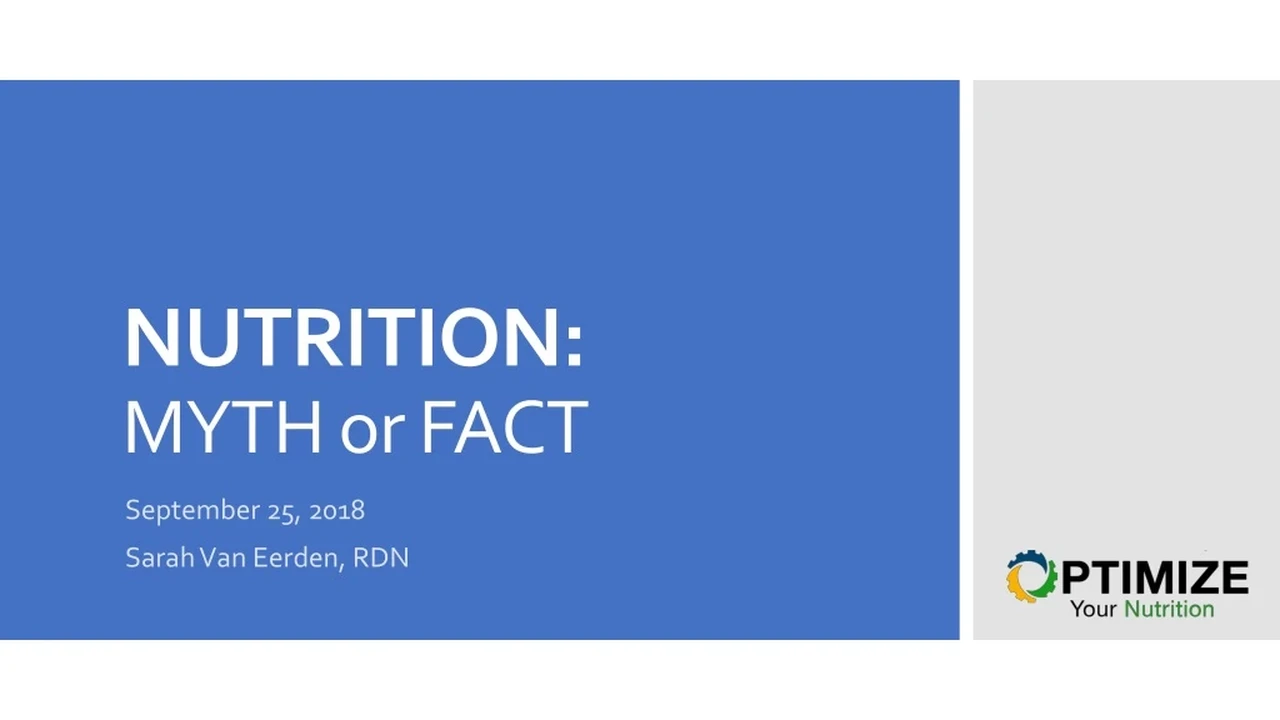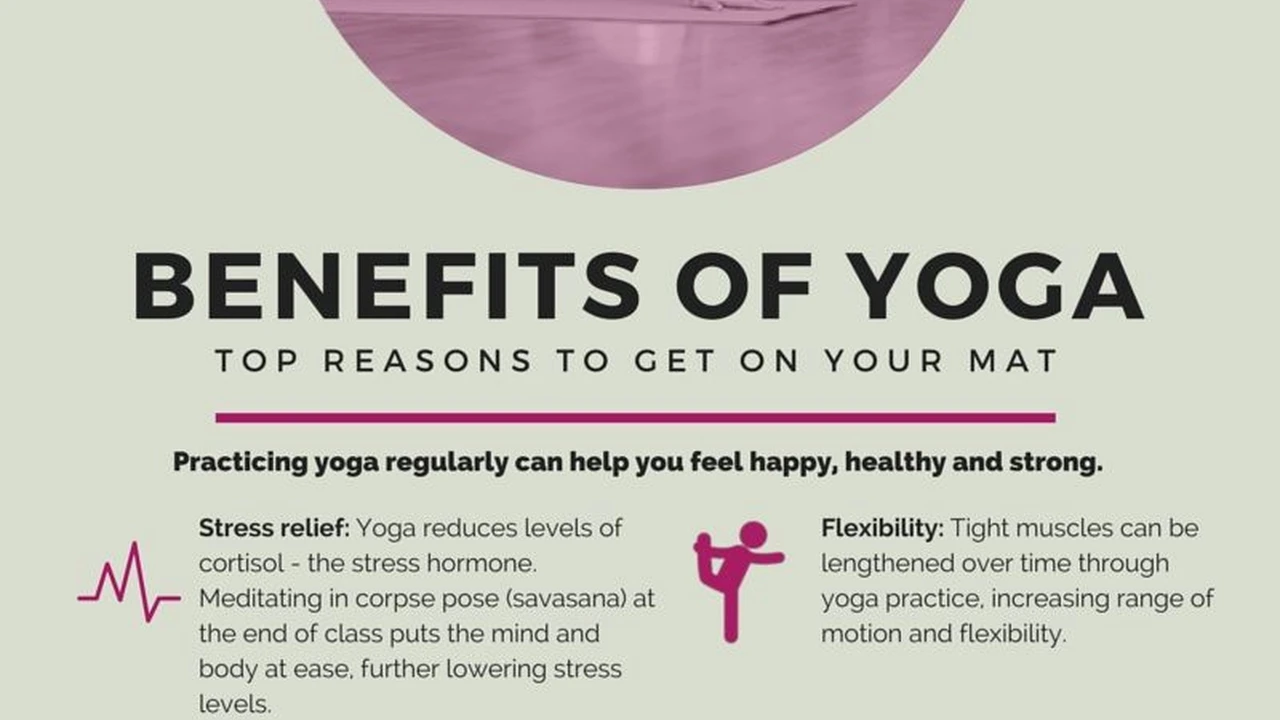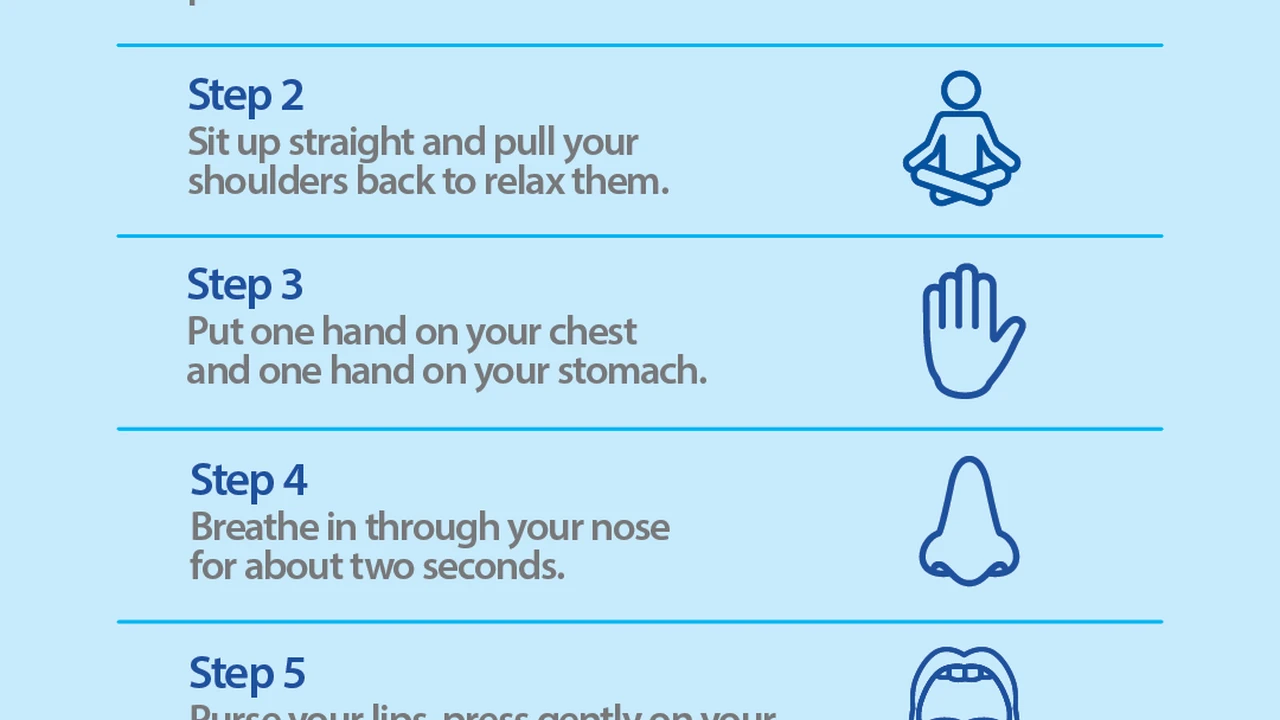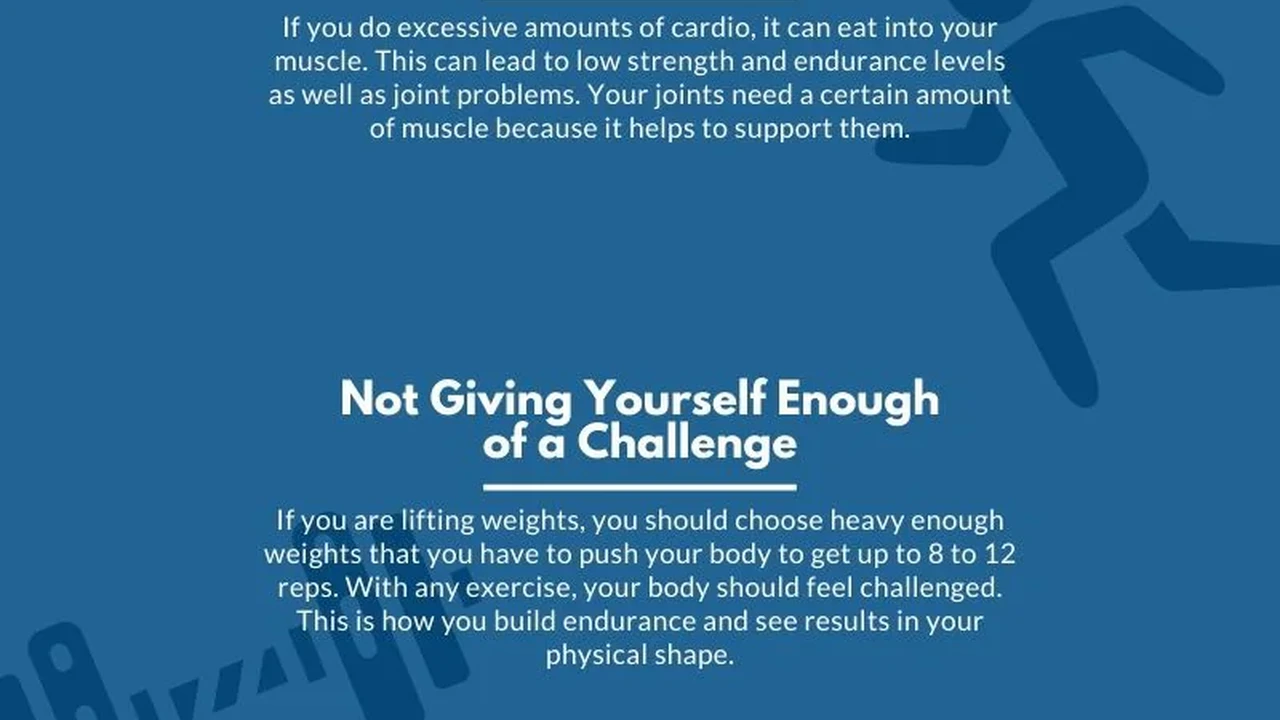Debunking Common Nutrition Myths: Separating Fact from Fiction

Discover the truth behind popular nutrition myths and separate fact from fiction. This article addresses popular misconceptions about food and dieting. Make informed choices based on evidence-based information for a healthier lifestyle.
Introduction to Nutrition Myths and Misconceptions
Hey there, health enthusiasts! Let's face it, the world of nutrition can be a confusing place. Everywhere you turn, there's a new diet trend, a miraculous superfood, or a scary headline about what you should and shouldn't eat. It's no wonder so many of us are scratching our heads, wondering what's actually true and what's just plain hype. Today, we're diving deep into the murky waters of nutrition myths to separate fact from fiction. Get ready to have your beliefs challenged and your knowledge expanded!
Myth 1: Carbs are the Enemy Understanding Carbohydrates for Weight Loss
Okay, let's get this one out of the way right now: carbs are not the enemy! For years, carbohydrates have been demonized as the main culprit behind weight gain. But the truth is, carbs are an essential source of energy for your body. The key is to choose the *right* carbs. Think whole grains, fruits, and vegetables – these are packed with fiber and nutrients.
Avoid processed carbs like white bread, sugary cereals, and pastries. These offer little nutritional value and can lead to blood sugar spikes and crashes. So, enjoy your whole-grain toast, sweet potato, or bowl of oatmeal guilt-free! They're fuel for your body and brain.
Myth 2: Eating Fat Makes You Fat Exploring Healthy Fats vs Unhealthy Fats
Another long-standing myth is that eating fat will make you fat. While it's true that fat is calorie-dense, it's also crucial for hormone production, cell function, and nutrient absorption. Just like carbs, the type of fat matters.
Focus on healthy fats like avocados, nuts, seeds, olive oil, and fatty fish. These fats are good for your heart and overall health. Steer clear of trans fats (found in many processed foods) and limit your intake of saturated fats (found in red meat and full-fat dairy). Healthy fats are your friends, not your foes!
Myth 3: You Need to Detox to Cleanse Your Body Detox Diets and Liver Health
Ah, the detox craze! Every January, it seems like everyone is promoting a juice cleanse or detox tea. The idea is that these products will "cleanse" your body of toxins. But here's the thing: your body is already equipped with its own detoxification system – your liver and kidneys.
These organs work tirelessly to filter out waste and toxins. Instead of relying on expensive and often ineffective detox products, support your body's natural detoxification process by eating a healthy diet, staying hydrated, and getting enough sleep. Your liver and kidneys will thank you!
Myth 4: Skipping Meals Helps You Lose Weight Meal Timing and Metabolism
This is a big one! Many people believe that skipping meals will help them cut calories and lose weight. But skipping meals can actually backfire. When you skip a meal, your body goes into "starvation mode," which can slow down your metabolism and make you crave unhealthy foods later on.
Plus, you're more likely to overeat at your next meal. Instead of skipping meals, focus on eating regular, balanced meals throughout the day. This will help you keep your metabolism revved up and prevent cravings.
Myth 5: Eating After 8 PM Leads to Weight Gain Late Night Snacking and Weight Management
The idea that eating after 8 PM automatically leads to weight gain is a common misconception. It's not *when* you eat, but *what* and *how much* you eat that matters. If you're consuming more calories than you're burning, you'll gain weight, regardless of the time of day.
That said, late-night snacking can be problematic if you're reaching for unhealthy, high-calorie foods. If you're truly hungry, opt for a light, healthy snack like a handful of almonds, a piece of fruit, or a small bowl of yogurt. Just be mindful of your overall calorie intake.
Myth 6: All Calories Are Created Equal Understanding Calorie Quality
While calorie counting can be a useful tool for weight management, it's important to remember that all calories are not created equal. 100 calories from a candy bar are not the same as 100 calories from an apple. The apple provides fiber, vitamins, and minerals, while the candy bar offers little nutritional value.
Focus on eating nutrient-dense foods that provide your body with the vitamins, minerals, and antioxidants it needs to thrive. Don't just focus on the number of calories; pay attention to the *quality* of those calories.
Myth 7: You Need to Cut Out Dairy for Weight Loss Dairy and Weight Loss
Dairy often gets a bad rap when it comes to weight loss. While some people may have sensitivities or allergies to dairy, it's not inherently bad for you. Dairy products like yogurt and cheese can be a good source of protein and calcium.
Choose low-fat or non-fat options to reduce your calorie intake. If you're lactose intolerant or prefer to avoid dairy, there are plenty of plant-based alternatives available, such as almond milk, soy milk, and coconut yogurt.
Myth 8: Supplements Are a Substitute for a Healthy Diet Vitamins and Mineral Supplementation
Supplements can be a helpful addition to a healthy diet, but they should never be used as a substitute for whole foods. Supplements are designed to *supplement* your diet, not replace it. Focus on eating a variety of fruits, vegetables, whole grains, and lean protein to get the majority of your nutrients.
If you have specific nutrient deficiencies or health concerns, talk to your doctor or a registered dietitian about whether supplements are right for you.
Specific Product Recommendations and Comparisons
Now, let's talk about some specific products that can help you on your nutrition journey, while remembering they are supplements to a healthy lifestyle, not replacements.
Protein Bars: A Quick and Convenient Snack
Protein bars are great for on-the-go snacking. Here are a few popular options:
- RXBAR: Made with simple ingredients like egg whites, nuts, and dates. Around $2-$3 per bar. Great for pre- or post-workout.
- Quest Bar: High in protein and low in carbs and sugar. Around $2-$3 per bar. Good for curbing sweet cravings.
- Clif Bar: A plant-based energy bar, suitable for longer workouts or hikes. Around $1.50-$2 per bar.
Consider the sugar content and ingredients when choosing a protein bar. Look for bars with minimal added sugar and whole food ingredients.
Greens Powders: Boosting Your Nutrient Intake
Greens powders can be a convenient way to boost your nutrient intake, especially if you struggle to eat enough vegetables. Some popular options include:
- Athletic Greens: A comprehensive blend of vitamins, minerals, and antioxidants. Pricey, around $99 per month. Great for overall health and immunity.
- Amazing Grass Green Superfood: A more affordable option with a good blend of greens and probiotics. Around $30-$40 per container. Ideal for daily nutrient support.
- Organifi Green Juice: Contains adaptogens for stress relief. Around $70 per container. Good for those seeking stress management benefits.
Consider your budget and specific needs when choosing a greens powder. Look for powders with a variety of ingredients and minimal added sugar.
Electrolyte Drinks: Staying Hydrated During Workouts
Electrolyte drinks can help you stay hydrated and replenish electrolytes lost during exercise. Here are a few popular options:
- Liquid I.V.: Provides rapid hydration with electrolytes and vitamins. Around $25-$30 per box. Great for intense workouts or travel.
- Nuun Sport: Sugar-free electrolyte tablets that dissolve in water. Around $15-$20 per tube. Convenient for on-the-go hydration.
- Gatorade: A classic sports drink with electrolytes and carbohydrates. Affordable and widely available. Good for moderate workouts.
Consider your workout intensity and sugar preferences when choosing an electrolyte drink. Look for drinks with a balance of electrolytes and minimal added sugar.
Final Thoughts
Navigating the world of nutrition can be overwhelming, but by debunking common myths and focusing on evidence-based information, you can make informed choices that support your health and well-being. Remember to focus on whole, unprocessed foods, listen to your body, and consult with a healthcare professional for personalized advice. Stay informed, stay healthy, and enjoy the journey!
:max_bytes(150000):strip_icc()/277019-baked-pork-chops-with-cream-of-mushroom-soup-DDMFS-beauty-4x3-BG-7505-5762b731cf30447d9cbbbbbf387beafa.jpg)






